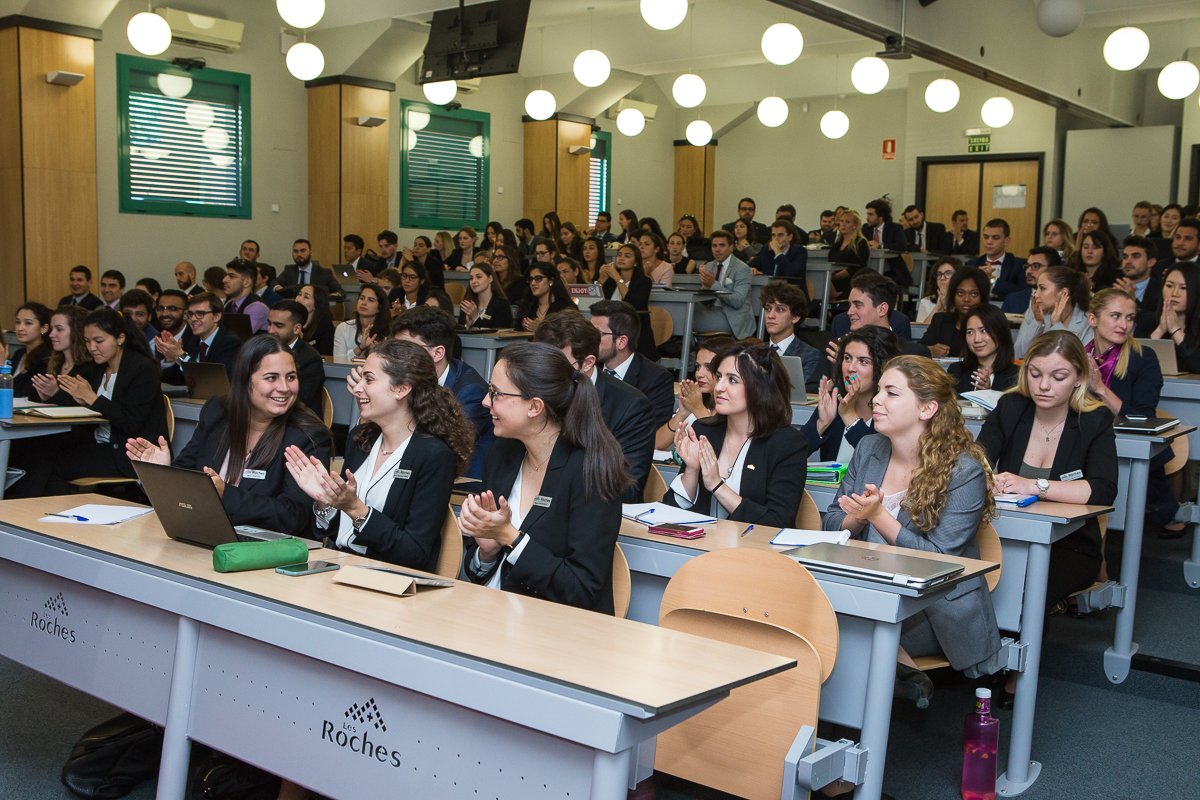Revenue Management firm, BEONPRICE, gave an in-depth lecture last week to the students of Les Roches Marbella’s BBA in Global Hospitality Management. During the seminar, the firm provides insights into the technological innovations available to hotels that wish to take advantage of Big Data while optimizing price management decisions. BEONPRICE’s list of the top 10 technological innovations is published below.
The technological factor is a distinctive feature both at an efficiency level and in terms of added value to the traveller. Systems that allow us to identify needs, speed up processes and reduce costs, allow us to improve our product in favour of a very fragmented market situation in which saturation and oversupply are the order of the day.
The hotel industry has the disadvantage of being one of the most customer-service-oriented sectors, providing user support 24 hours a day, 365 days a year. This factor, along with competition and constantly evolving demands, forces businesses to make efficient decisions when trying to improve and satisfy customers above and beyond their expectations. Consequently, there are numerous possibilities and opportunities that innovation can offer hotels. At the same time, these advantages are complicated by the difficulty and demand of keeping up to speed with technological advances, the appearance of new players, and political and social instability which might affect certain markets.
 Given the complexity of interpreting the current situation and subsequently implementing it in our products, the media makes enormous noise, sending confused messages in all directions. In such circumstances, it’s important to stop to analyze what technologies and media we have at our disposal in order to make use of competitive advantages within our environment. To help you synthesize current information and get a “snapshot” of what tools you can use to improve results, we give you the following interesting list:
Given the complexity of interpreting the current situation and subsequently implementing it in our products, the media makes enormous noise, sending confused messages in all directions. In such circumstances, it’s important to stop to analyze what technologies and media we have at our disposal in order to make use of competitive advantages within our environment. To help you synthesize current information and get a “snapshot” of what tools you can use to improve results, we give you the following interesting list:
- Booking engines adapted to distribute complementary supplies. Technology has identified the distribution of tourist produce as one of the main attractions of technology companies. Although standardization and scalability problems complicate the process, there are certain booking systems that simplify the distribution of activities and services such as guided tours, horse rides or gastronomy routes. This is, undoubtedly, a step beyond the traditional booking engines.
- All-in-one PMS (Property Manager System) to simplify hosting management. The ease of integrating functions on APIs frees up the interconnectivity of technological tools. If we add this to the situation of stagnation in many partnerships, we will observe that PMS solutions have arisen on the cloud which can solve and achieve more efficient hotel management.
- Loyalty macro-programs. The motto “strength in numbers” could apply to the perception of big loyalty programs which have sprung up around the world. As well as having the added value of being connected to a large group of host facilities, these kinds of programs allow members to interact, use services and enjoy the advantages of feeling part of a collective that improves their reservations.
- Chatbots to free up customer service. Machine learning technology, linked to virtual assistants, simplifies customer support within increasingly advanced limits. Solving problems when managing queries, complaints or any kind of consultation will simplify improvements in opinion, booking ratios or conflict resolution.
- Booking recovery systems. The cost that a hotel incurs when distributing web traffic makes it necessary to optimize the process of retaining the attention of potential customers. As a result, emerging technologies have made it easier to encourage purchases through stimuli which boost the reservation and bring extra value to the user.
- Centralization of the online reputation management. According to TripAdvisor’s 2015 “TripBarometer” study, reputation continues to be the second most important factor that travelers consider when making decisions. Consequently, managing and centralizing these channels is of vital importance. To perform this task, we need tools that allow us to filter and analyze all of the valuable information that society provides.
- Automated marketing software to speed up processes and reduce costs. System automation reduces costs and takes advantage of impulsive selling opportunities. This process is made possible thanks to inbound marketing strategy tools which capture leads and automize flow management. All of this is placed in the hands of marketing and commercialization departments.
- Revenue Management System (RMS) tools to improve revenue strategy. This means using and organizing the great volumes of data that we currently possess, as well as all public information at our disposal. This favors the use of intelligence in decisions about our revenue strategies, which would always be done through RMS systems.
- Content strategies to strengthen the connection to the destination. Contents simplify the contribution of value to the traveler and visibility through long-term strategies. Orienting our hosting facilities will create a structural change in the commercial and marketing sector, making it more focused on needs and how to satisfy these.
- 360º tracking of all activities carried out in hotels. All transactions performed here must be analyzed in conjunction with all the information generated. Its importance lies in optimizing our resources and better orienting our strategy, in terms of both the product and its distribution. Consequently, it’s highly advisable to analyze our strategic positioning through constant tracking and evolving objectives.
To help your company remain up-to-date and realistic, we encourage you to use the best management and distribution technologies to improve your results from a competitive standpoint. These new functions will allow innovation in our accommodation, which will ultimately make it more efficient.



